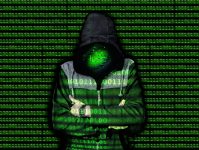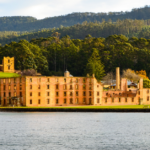The Dark Web: A Good or Bad Thing?

The ‘dark web’ generally refers to areas of the internet only accessible through anonymous web browsers.
A recent survey found that 71 percent of people across 24 surveyed countries want the dark web shut down, with most participants feeling that the risks outweigh the benefits. In Australia, 72 percent of participants felt the dark web should be made inaccessible, with 36 percent ‘strongly agreeing’ and 35 percent ‘somewhat agreeing’.
The Dark Web
Broadly speaking, the dark web refers to any internet page that has been concealed so it cannot be indexed by search engines like Google. Special software is required to access these sites, such as Tor, which aims to ensure anonymity by passing messages through an interconnected network of other computers (rather than internet servers) and encrypting messages as they pass.
Roger Clarke from the Research School of Computer Science at the Australian National University explains that dark net users rely on local networks to get a “message from A to B”.
“Supposing we chained everybody’s next door neighbours’ wi-fi networks together, and supposing I had a mate on the other side of town… and I managed to find a way to send a message to him by having it go to my next door neighbour’s network and then on to the next one, and so on. This message would not be visible to the Telstras and the Optuses of Australia,” he said.
Tor is not currently illegal to use in Australia, and anyone who wishes to surf the internet anonymously can download the software; but it is what people do with the veil of anonymity that has caused concern.
Uses for the Dark Web
The dark web can be used to hide activity from governments and law enforcement agencies, and there are many legitimate reasons for using it.
The developers of Tor and organisations like the Electronic Frontier Foundation (EFF) say most users are activists and others concerned with maintaining their privacy for political or personal reasons.
Tor has been used by journalists to communicate with whistleblowers and others who want to express anti-government views, including Edward Snowden who allegedly communicated with the press about the NSA’s PRISM surveillance program, which exposed widespread government surveillance of US citizens. People in countries run by totalitarian governments often use the dark web to communicate and share files without the fear of persecution.
However, many sites are also used to carry out illegal activities, including transmitting images of child pornography, drug-dealing and arms trading; which have led many to conclude that the dangers outweigh the benefits.
Popularity of Tor
The use of software like Tor has increased since revelations of the US government’s mass surveillance of ordinary citizens.
Australians concerned with new data retention laws have also turned to Tor-like anonymity services to thwart the government’s collection of personal data. The new laws require internet and phone service providers (ISPs) to store the personal data of all users for 2 years and make it available to a range of law enforcement agencies without them even having to obtain a warrant.
Tor can block this access by routing connections to the end website through intermediary IP addresses, which is appealing for those concerned about their privacy.
Government Control, Public Opinion and the Law
In October 2008, the Labor government proposed extending internet censorship to a system of mandatory filtering of overseas websites which could potentially be “refused classification” (RC).
After the proposal was reversed under pressure, the ABC commissioned McNair Ingenuity Research to perform a telephone poll of 1,000 Australians in February 2010. Participants were asked whether there should be: “A Government-appointed body determining whether a website is appropriate for you to visit”. 50% were in favour of the proposition while 46% were against.
In April 2015, the Australian government passed amendments to the Defence Trade Controls Act, under which a range of educational activities such as the teaching of cryptography and certain computer sciences were made criminal offences.
Peter Eckersley, chief computer scientist at the Electronic Frontier Foundation, describes Australia’s new laws as “incredibly bizarre”. “Until now, Tor has been most essential to citizens of countries like Egypt, Iran and Syria, where wildly intrusive internet surveillance and censorship has been the norm,” he said. “But alarmingly, Australia now seems destined to join that list. With the metadata bill and the censorship copyright bill that just passed, the Abbott government is taking an explicitly anti-internet political position. They see the internet as a dangerous thing.”
Like many other technologies, the dark net has split public opinion and led governments to introduce laws which err on the side of state control rather than individual liberties.






